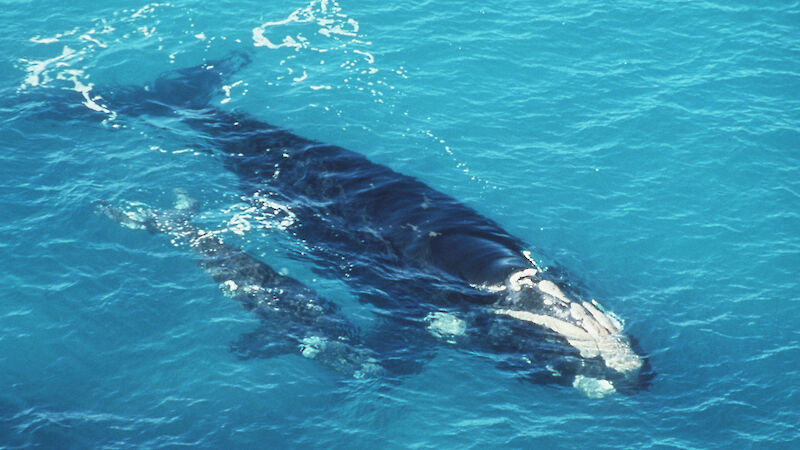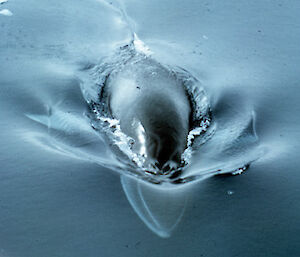Australia and Chile today signed an historic agreement to cooperate on whale research and other whale conservation activities at the International Whaling Commission (IWC) meeting in Santiago, Chile.
Environment Minister, Peter Garrett signed a statement of intent on the cooperative initiatives while at the 60th International Whaling Commission meeting in Santiago with Chilean Environment Minister Ana Lya Uriarte.
Mr Garrett described the IWC meeting as a catalyst in identifying common interests that the two coastal South Pacific countries shared in the conservation and management of whales and other marine biodiversity.
“This agreement reflects the strong interest of the people of Chile and Australia in whale conservation and we hope it will be the first of many such agreements with like-minded countries around the world,'' Mr Garrett said.
“This agreement delivers on two of the key reform measures proposed by Australia at this meeting — strategic research partnerships and internationally agreed conservation management plans.
"I was honoured to be present earlier this week when the President of Chile signed into law a Chilean whale sanctuary at a former whaling station, which was symbolic of the changing world opinion away from whaling and toward whale conservation.
“I congratulate the Government of Chile and its people for their cooperation and enthusiasm for whale conservation and look forward to our two countries working closely into the future on protecting the giants of the sea.''
The program of work that will ensue from this agreement includes regional research partnerships, a research exchange program, conservation management activities and building capacity in the area of regulatory environmental management.
Australia will also host a workshop, open to all scientists, in early 2009 to develop a research plan for the Southern Ocean research partnerships. Australia and Chile will establish a steering committee to organise the workshop and invite participation from other countries.
The research exchange program will be managed by the Australian Marine Mammal Centre in Hobart and be linked to universities in both countries.
Annex 1: PRIORITY AREAS FOR COOPERATION ON CETACEAN SCIENCE AND ENVIRONMENTAL MANAGEMENT
Regional Research Partnerships
- Australia will host a workshop in early 2009 to develop a research plan for the Southern Ocean research partnerships. This workshop will be open to all scientists and groups interested in participating in this collaboration.
- Australia and Chile will cooperate in the establishment of a steering committee to assist with the organisation for the workshop and will invite participation from representative countries and research groups.
Researcher Exchange Program
- Australia and Chile will promote capacity building through the exchange of researchers and technology between Australia, Chile and other like-minded countries.
- As an initial step Governments will cooperate to pilot the scheme by inviting up to two scientists from Chile to visit Australia to promote cooperation for conservation science for cetaceans.
- The program will be managed through the Australian Marine Mammal Centre and be linked to relevant Australian and Chilean Universities.
Conservation management activities
- Australian and Chilean officials will explore the potential for the development of a ‘model’ Conservation Management Plan for a species of mutual interest. This work could form the basis of more formalised cooperation in the future on regional plans of action for migratory species, particularly cetaceans.
Regulatory Management Capacity Building
- Australia and Chile will exchange information, expertise and facilitate expert advice on regulatory approaches to environmental assessment, monitoring and compliance. The purpose of the capacity building will be to review approaches, identification of best practice and opportunities to build capacity on this issue.


